Rob Bignell's Blog, page 269
February 24, 2016
Quit thinking of yourself: I vs. me
Maybe some 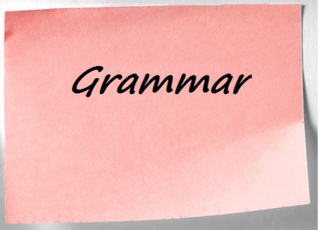 writers are just too self-absorbed to get this one right. All too often when editing, I see sentences like The boss handed the project off to Laura and I.
writers are just too self-absorbed to get this one right. All too often when editing, I see sentences like The boss handed the project off to Laura and I.
What if Laura wasn���t part of the equation, though? You wouldn���t write The boss handed the project off to I. Instead, you���d write The boss handed the project off to me.
If using the word to, use me rather than I. If ���you��� are the subject of the sentence, then use I as in I handed the project off to Laura and that flunky writer.
Professional Book Editor: Having your novel, short story or nonfiction manuscript proofread or edited before submitting it can prove invaluable. In an economic climate where you face heavy competition, your writing needs a second eye to give you the edge. I can provide that second eye.
<A HREF="http://ws-na.amazon-adsystem.com/widg... Widgets</A>
Related articles
 Common questions about publishing ebooks
Common questions about publishing ebooks What are the different levels of editing?
What are the different levels of editing? Promote your book by hosting guest bloggers
Promote your book by hosting guest bloggers
February 23, 2016
Four writing prompts: Avoidance
Good stories 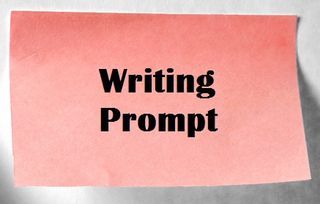 center on the clashing of characters��� goals and motivations. Sometimes a character���s goals and motivations arise through their efforts to avoid something. Here are four writing prompts for stories that involve the motivation of avoidance.
center on the clashing of characters��� goals and motivations. Sometimes a character���s goals and motivations arise through their efforts to avoid something. Here are four writing prompts for stories that involve the motivation of avoidance.
Man vs. nature
On an important journey ��� perhaps to deliver a message, person or item ��� the main character hopes to avoid a naturally perilous area, such as a treacherous mountain range or an expansive badlands, due to its inhospitable conditions and dangerous animals and plants. Unfortunately for the main character, to complete his journey, he is forced to cross this area he hopes to avoid. How does he survive it? What virtues does he possess that allows him to survive? What lessons does he learn during his efforts?
Man vs. man
What if two people who don���t like one another are forced to live together? Perhaps it���s a married couple that has split, with one living upstairs and the other in the basement, or maybe it���s a stepparent and a teenage stepchild. How do the two avoid one another? What event must and internal changes in their thinking must occur to bring them together?
Man vs. society
Your main character witnesses something illegal. The power behind the illegal activity wants to shut up your main character before he reveals what he knows ��� except nobody believes him (unbeknown to the group behind the illegal activity) and he must search for more evidence to prove his claim so he may get the protection and help he needs.
Man vs. himself
To stay alive, the main character must defeat an evil character. The main character soon realizes, however, that to do this, he symbolically must make a bargain with the devil, something he hoped to avoid. What moral debates does he hold in his head as deciding whether or not to accept the bargain?
Professional Book Editor: Having your novel, short story or nonfiction manuscript proofread or edited before submitting it can prove invaluable. In an economic climate where you face heavy competition, your writing needs a second eye to give you the edge. I can provide that second eye.
Related articles
 Develop conflicts related to resolving your story's central problem
Develop conflicts related to resolving your story's central problem Questions to ask yourself when plotting a story
Questions to ask yourself when plotting a story How to create an interesting villain for your story
How to create an interesting villain for your story
February 22, 2016
Three-act structure offers alternate story plot
One common 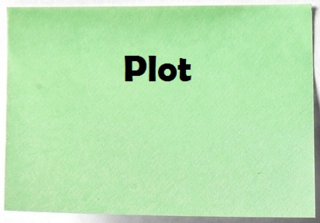 way to think about how a story is organized is the three-act structure. This approach dates to Aristotle, who stated that a story has a beginning, a middle and an end.
way to think about how a story is organized is the three-act structure. This approach dates to Aristotle, who stated that a story has a beginning, a middle and an end.
The beginning, or Act 1, introduces the story���s main character, time, place and central problem. Usually, the character���s life is knocked out of whack. This section of the story is equivalent to the inciting incident or the opening. For example, the death of a parent causes our main character to return to his small hometown for the funeral, though he���s estranged from the family. In returning home, the main character decides he must patch up relations with his family, for he���s always felt an emptiness in not having them in their lives despite his academic and career success.
The middle, or Act 2, centers on increasing tension as the main character tries to solve the problem. The bulk of the story ��� typically longer than the beginning and end combined ��� this section also can be considered the rising action. In this section for the example mentioned in the previous paragraph, the main character attempts to converse with his family members, only to be met coolly by some and outright resistance by others. Perhaps he meets an unlikely ally (a sister-in-law?) who encourages him and helps him reconnect with some. As this act continues, the main character will succeed in getting along with some family members, but the one he ultimately must reconnect with ��� his father, the family patriarch ��� remains elusive.
The end, or Act 3, is when the main character resolves the problem. This typically is the same as the climax, falling action, and ending. In the above story example, he actually would reconnect with his father during a confrontation with him. Afterward, loose ends would be tied up, such as the main character agreeing to come back to visit for a holiday just before he returns to the big city where he lives.
Though a simplified way of looking at stories, it���s still used today. As the ancients didn���t write novels but primarily plays and long poems, a modified version of the three-act structure is still used in screenwriting; for example, in television, each section between the commercials is an ���Act.���
Professional Book Editor: Having your novel, short story or nonfiction manuscript proofread or edited before submitting it can prove invaluable. In an economic climate where you face heavy competition, your writing needs a second eye to give you the edge. I can provide that second eye.
<A HREF="http://ws-na.amazon-adsystem.com/widg... Widgets</A>
Related articles
 How many words is a novella?
How many words is a novella? Writing inspiration: Model a story
Writing inspiration: Model a story Writing inspiration: Read your favorite author
Writing inspiration: Read your favorite author Questions to ask yourself when plotting a story
Questions to ask yourself when plotting a story Consider using episodic fiction plot structure
Consider using episodic fiction plot structure
February 21, 2016
Five Great Quotations about Fantasy Fiction
���Fairy tales  are more than true: not because they tell us that dragons exist, but because they tell us that dragons can be beaten.��� - Neil Gaiman
are more than true: not because they tell us that dragons exist, but because they tell us that dragons can be beaten.��� - Neil Gaiman
���Part of the appeal of the fantastic is taking ridiculous ideas very seriously and pretending they���re not absurd.��� - China Mi��ville
���Fantasy is a necessary ingredient in living, it���s a way of looking at life through the wrong end of a telescope.��� - Dr. Seuss
���Stories of imagination tend to upset those without one.��� - Terry Pratchett
���Fantasy is escapist, and that is its glory. If a soldier is imprisioned by the enemy, don���t we consider it his duty to escape?��� - J.R.R. Tolkien
Professional Book Editor: Having your novel, short story or nonfiction manuscript proofread or edited before submitting it can prove invaluable. In an economic climate where you face heavy competition, your writing needs a second eye to give you the edge. I can provide that second eye.
<A HREF="http://ws-na.amazon-adsystem.com/widg... Widgets</A>
Related articles
 Five Great Quotations about Writer's Block
Five Great Quotations about Writer's Block How many words is a novella?
How many words is a novella? Five Great Quotations about Bad Writing
Five Great Quotations about Bad Writing Five Great Quotations about Fantasy Fiction
Five Great Quotations about Fantasy Fiction
February 20, 2016
Affirmation: I can write anything I set my mind to
There are 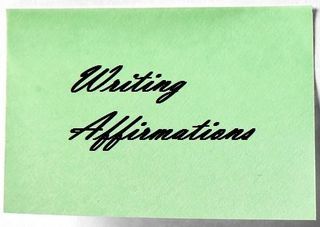 many reasons your writing might fall flat ��� it���s written in passive voice, you tell rather than show, the point of view shifts constantly ��� but the biggest one is because you don���t believe you���re capable of penning the short story or book in the first place.
many reasons your writing might fall flat ��� it���s written in passive voice, you tell rather than show, the point of view shifts constantly ��� but the biggest one is because you don���t believe you���re capable of penning the short story or book in the first place.
In fact, your mind can sabotage you even before your finger hits the first letter on the keypad or your pen leaves its first drop of ink on the paper.
Writers who believe their skills are set ��� that their abilities, intelligence and skills are fixed ��� usually talk themselves out of writing in the first place. Or if they do write a passage, they don���t bother to revise it or to complete the work that it is part of. They often view their writing as a failure.
In contrast, writers who believe their skills grow ��� especially the more they practice, read about, and persist with their craft ��� typically not only write the passage but revise it several times and then continue with the next passage to complete their book. They accept that their writing is imperfect but know it can be honed into something powerful.
You won���t be able to publish a short story or book unless you work at it. And if you first believe you can do it, you���re more likely to work hard to achieve your goal. Rather than tell yourself that your writing can���t get any better, change your mindset. Tell yourself, ���I can write anything I set my mind to.���
Now go write that book you���ve always dreamed of!
Professional Book Editor: Having your novel, short story or nonfiction manuscript proofread or edited before submitting it can prove invaluable. In an economic climate where you face heavy competition, your writing needs a second eye to give you the edge. I can provide that second eye.
<A HREF="http://ws-na.amazon-adsystem.com/widg... Widgets</A>
Related articles
 Writing inspiration: Read your favorite author
Writing inspiration: Read your favorite author Writing inspiration: Model a story
Writing inspiration: Model a story Writing Prompt: Try something risky
Writing Prompt: Try something risky
February 19, 2016
Preparing your book reading, presentation
If you���re  a little anxious about speaking in front of a crowd for a book presentation, that���s understandable; public speaking is one of the biggest fears people have. But with a little preparation ��� and after you���ve made a few public appearances ��� you���ll soon find that it���s actually a lot of fun!
a little anxious about speaking in front of a crowd for a book presentation, that���s understandable; public speaking is one of the biggest fears people have. But with a little preparation ��� and after you���ve made a few public appearances ��� you���ll soon find that it���s actually a lot of fun!
Preparing for a book presentation generally involves two components: writing the presentation and then practicing it.
Writing the presentation
Usually the book reading follows a simple format: introductions by a host; a few introductory words by you; you reading your book aloud; an audience Q&A with you; and then the book signing. You���ll want to select in advance which passage you read.
A presentation that doesn���t involve a reading is much like an expository speech: an introduction by the host; an introduction by you; three or four major points that you cover in detail; a conclusion in which you summarize your points and thank the audience; a Q&A session. This means you���ll need to prepare a speech and possibly a PowerPoint presentation or slide show.
A meet-and-greet and a simple book signing generally have no structure ��� you just sit and wait for others to pass by. Still, you���ll want to think of a short pitch that you can use to introduce yourself and your books as people stop by.
Don���t wait until the night before to write up your presentation! Rushing your work on it often results in a mediocre performance and that some key points will be forgotten. In addition, writing the presentation a few weeks in advance means you���ll have plenty of time revise and practice it.
Practice the presentation
Practice reading your passage for a book reading or your presentation speech out loud at least a couple of times. You don���t have to memorize the text, just familiarize yourself with it.
Make sure the presentation doesn���t go longer than the time allotted to you. For a book reading, 10-15 minutes usually is enough; if reading a short story from an anthology, just go with a single story. For a formal speech, you���ll need to see how long you have, but if the workshop is about 50 minutes long, you���ll want to speak for about 35-40 minutes. This will allow some time for questions and any introductions by a host. Have in the back of your mind some additional material that can be presented in case there are only a couple of or even no questions.
In addition, think about how you���ll answer any questions you might be asked. Begin by attending a few book readings or presentations by other authors to get a feel for what kind of questions your audience might ask. Then think of some answers to them, as they relate to your book. After you���ve done a few book readings, you���ll discover that the same questions keep popping up.
Practicing in front of a friend also can be beneficial. Use their constructive criticism to perfect your presentation.
Professional Book Editor: Having your novel, short story or nonfiction manuscript proofread or edited before submitting it can prove invaluable. In an economic climate where you face heavy competition, your writing needs a second eye to give you the edge. I can provide that second eye.
<A HREF="http://ws-na.amazon-adsystem.com/widg... Widgets</A>
Related articles
 What makes a person a 'writer'?
What makes a person a 'writer'? Write winning query letter to editors, agents
Write winning query letter to editors, agents Six great topics for authors to tweet about
Six great topics for authors to tweet about
February 18, 2016
Editing client publishes his first literary novel
A recent 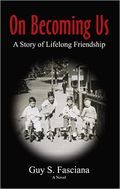 editing client has published his first novel. Guy Fasciana���s ���On Becoming Us: A Story of Lifelong Friendship,��� presents the interweaving stories of Jeffrey Rosenbloom, Salvatore ���Sal��� Greco, Mike Costanzo, and Ted Mosconi, who meet one evening during Cub Scouts at Saint Rocco���s Catholic Church in Pittston, Pennsylvania. They make a pact in which they would be ���friends-for-life.��� Love, religion, two failed marriages, illness, and family test their mettle individually and collectively throughout their lives. The book is available online.
editing client has published his first novel. Guy Fasciana���s ���On Becoming Us: A Story of Lifelong Friendship,��� presents the interweaving stories of Jeffrey Rosenbloom, Salvatore ���Sal��� Greco, Mike Costanzo, and Ted Mosconi, who meet one evening during Cub Scouts at Saint Rocco���s Catholic Church in Pittston, Pennsylvania. They make a pact in which they would be ���friends-for-life.��� Love, religion, two failed marriages, illness, and family test their mettle individually and collectively throughout their lives. The book is available online.
Professional Book Editor: Having your novel, short story or nonfiction manuscript proofread or edited before submitting it can prove invaluable. In an economic climate where you face heavy competition, your writing needs a second eye to give you the edge. I can provide that second eye.
&amp;lt;A HREF="http://ws-na.amazon-adsystem.com/widg... Widgets&amp;lt;/A&amp;gt;
Related articles
 Five Great Quotations about the Writing Process
Five Great Quotations about the Writing Process Make tables readable in your self-published book
Make tables readable in your self-published book Editing client releases his first historical novel
Editing client releases his first historical novel
February 17, 2016
Use commas to set off nonessential information
Often we���re 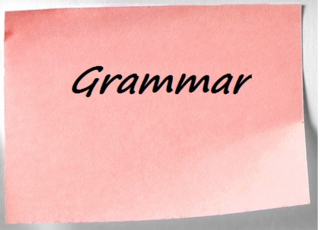 taught to use commas is we pause when speaking. While that can be helpful, generally commas aren���t about showing how a person should say a line of text. Instead, authors use commas to subtly signal a variety of information to readers, and how we convey that when speaking may not correlate at all to what is done when writing.
taught to use commas is we pause when speaking. While that can be helpful, generally commas aren���t about showing how a person should say a line of text. Instead, authors use commas to subtly signal a variety of information to readers, and how we convey that when speaking may not correlate at all to what is done when writing.
One bit of information commas signal to readers is that we���ve included additional details that do not affect the meaning or understanding of the sentence. In short, these details could be deleted from your sentence (and if you���re trying to make a word count and need to cut, such details are perfect for that). Usually such information appears in the middle of a sentence. These details are known in grammar parlance as nonessentual clauses.
An example would be who is in my class in the sentence Jane Johnson, who is in my class, scored the most points in last night���s game. That Jane is in the writer���s class is unnecessary for understanding the point of the sentence, which is that she was the highest score in last night���s game. Because of this, who is in my class must be set off with commas.
Professional Book Editor: Having your novel, short story or nonfiction manuscript proofread or edited before submitting it can prove invaluable. In an economic climate where you face heavy competition, your writing needs a second eye to give you the edge. I can provide that second eye.
&lt;A HREF="http://ws-na.amazon-adsystem.com/widg... Widgets&lt;/A&gt;
Related articles
 One or three? Nonetheless vs. none the less
One or three? Nonetheless vs. none the less Serial comma: Use, don't use, or don't worry?
Serial comma: Use, don't use, or don't worry? Web text demands different kind of writing style
Web text demands different kind of writing style Writing Inspiration: Set a goal to succeed
Writing Inspiration: Set a goal to succeed
February 16, 2016
Four Writing Prompts: Finding Identity
Good stories 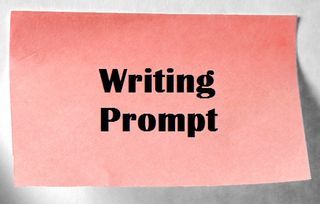 center on the clashing of characters��� goals and motivations. Sometimes a character���s goals and motivations center around finding his identity. Here are four writing prompts for stories that involve the motivation of finding one���s identity.
center on the clashing of characters��� goals and motivations. Sometimes a character���s goals and motivations center around finding his identity. Here are four writing prompts for stories that involve the motivation of finding one���s identity.
Man vs. nature
Your main character is stuck in a perilous environment in which all he comes to question all he believes in, as he barely is able to survive his journey to safety. What new virtues does he come to cherish, and how does he come to define himself, as he slowly, achingly, closes on a successful conclusion of his journey?
Man vs. man
A person with amnesia arrives at the main character���s doorstep. How does our main character help the amnesia victim find his way in the world? How does the main character search to determine the amnesia victim���s identity? What if this amnesia victim doesn���t want to learn who is?
Man vs. society
Our main character finds himself stuck in a place where he is unable to communicate with others. How does he find his way? What if this society looks down upon because of his inability to communicate?
Man vs. himself
The main character finds he is unable to settle on his own identity, which is exemplified in his constantly changing outward expression of self (haircut, facial expressions, clothing, favorite verbal expressions, etc.). How through self-examination does he determine what is meaningful to him? How in the end does he imagine his future so he can determine who he is today?
Professional Book Editor: Having your novel, short story or nonfiction manuscript proofread or edited before submitting it can prove invaluable. In an economic climate where you face heavy competition, your writing needs a second eye to give you the edge. I can provide that second eye.
&amp;amp;amp;amp;amp;amp;amp;amp;lt;A HREF=&amp;amp;quot;http://ws-na.amazon-adsystem.com/widg... Widgets&amp;amp;amp;amp;amp;amp;amp;amp;lt;/A&amp;amp;amp;amp;amp;amp;amp;amp;gt;
Related articles
 Why you can't get your outline into words
Why you can't get your outline into words Develop conflicts related to resolving your story's central problem
Develop conflicts related to resolving your story's central problem How to create an interesting villain for your story
How to create an interesting villain for your story Develop complex antagonist to maximize conflict
Develop complex antagonist to maximize conflict
February 15, 2016
Utilize both internal and external conflicts
All stories 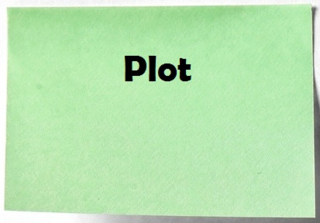 center on conflict; arguably, the whole point of a story is to resolve some type of conflict. One way of thinking about conflict is to divide it into categories ��� internal and external.
center on conflict; arguably, the whole point of a story is to resolve some type of conflict. One way of thinking about conflict is to divide it into categories ��� internal and external.
Internal conflict involves a character struggling with his own thoughts and emotions. The story focuses on what decision he will make. For example, a character dealing with crushing personal guilt for a bad, injurious choice he made faces an internal conflict. This conflict often is referred to as man vs. himself.
External conflict centers on a character grappling with forces outside of his own mind and feelings. Such a character might oppose the values of society, battle another person, attempt to survive Mother Nature, or in ancient literature disagree with the gods. The tale essentially is about how the character will overcome those challenges.
Quality stories rarely only have an internal or an external conflict. While one of them might be the book���s focus, usually they work in tandem. Indeed, often an internal conflict comes about because some external conflict has occurred. Perhaps in the story about the character with crushing personal guilt, in the opening chapter he finds a victim of a crime that parallels one of his victims. While in the rest of the novel the solving of the crime he discovered may take a back seat to his internal struggle, the discovery of its victim sets in motion the story by making his guilt so unbearable that he must atone for it so his world right. Of course, the crime that opened the story also must be resolved by story���s end for the reader���s sake.
Professional Book Editor: Having your novel, short story or nonfiction manuscript proofread or edited before submitting it can prove invaluable. In an economic climate where you face heavy competition, your writing needs a second eye to give you the edge. I can provide that second eye.
<A HREF="http://ws-na.amazon-adsystem.com/widg... Widgets</A>
Related articles
 How many words is a novella?
How many words is a novella? Writing inspiration: Model a story
Writing inspiration: Model a story Writing inspiration: Read your favorite author
Writing inspiration: Read your favorite author



